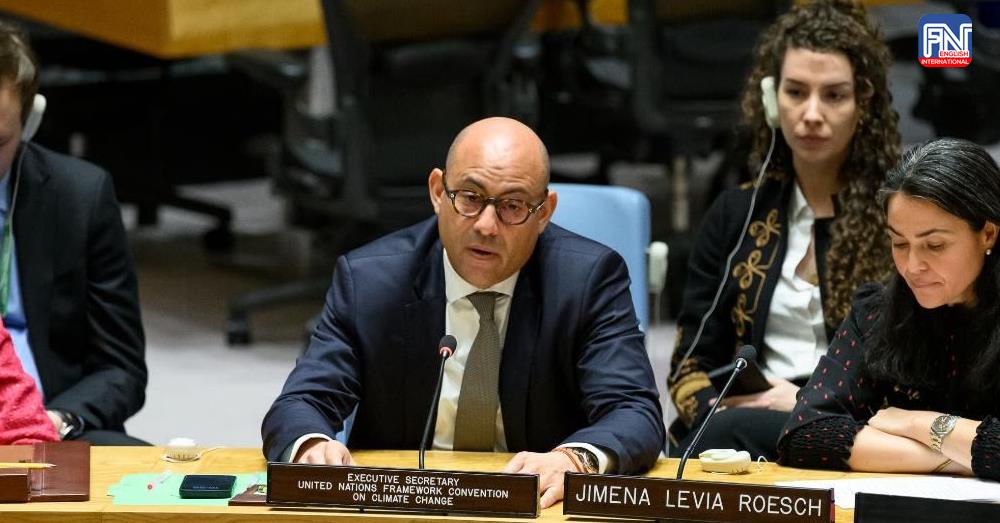UNITED NATIONS, Feb. 13 (Xinhua) - Simon Stiell, Executive Secretary of the United Nations Framework Convention on Climate Change (UNFCCC), on Tuesday emphasized the critical need for rapid action against climate change to prevent future conflicts.
Addressing the Security Council high-level open debate on the impact of climate change and food insecurity on the maintenance of international peace and security, Stiell highlighted the dire state of global hunger exacerbated by climate change.
"Today, one in 10 people on earth already suffers from chronic hunger. That number is unacceptable." He stressed the intertwined nature of climate change, food insecurity, and conflict, stating that "climate change is contributing to food insecurity and to conflict."
The UNFCCC chief underscored the urgency of the situation, noting the rapid changes in climate patterns and their destructive impact on agriculture. "The world is heating. Fast. Rainfall patterns are changing. And storms are becoming stronger and more destructive," Stiell remarked.
He cited the Intergovernmental Panel on Climate Change, highlighting that "food production is already lower than it would have been without climate change."
Stiell drew attention to the potential for "huge supply shocks" in the future, where "harvests fail simultaneously, in major producer countries."
He warned of the inevitable food shortages, price spikes, and hunger that would follow without significant climate action.
The links between hunger and conflict are well-established, Stiell noted, with historical instances where "bread riots have fueled revolutions and toppled governments."
He emphasized, "The combination of climate change, hunger, and war is a devastating one."
"There is no national security without food security. And there will be no food security without enhanced action to stop climate change," said Stiell.
He highlighted the solutions and ways forward, including the role of the UNFCCC process and the need for the Security Council to be informed about climate security risks in real-time.
Stiell called for prioritizing investments in climate-resilient agrifood systems and adaptation plans that identify increasing food security as a priority.
He stressed the need for significant adaptation finance, particularly for developing countries vulnerable to climate shocks.
Concluding his speech, Stiell emphasized the importance of ambitious Nationally Determined Contributions aligned with the Paris Agreement goals.
"Investment in adaptation, resilience, and clean energy can increase prosperity and food security and help avoid future conflicts," Stiell concluded, advocating for climate action as a means to build peace.

Photo from Xinhua